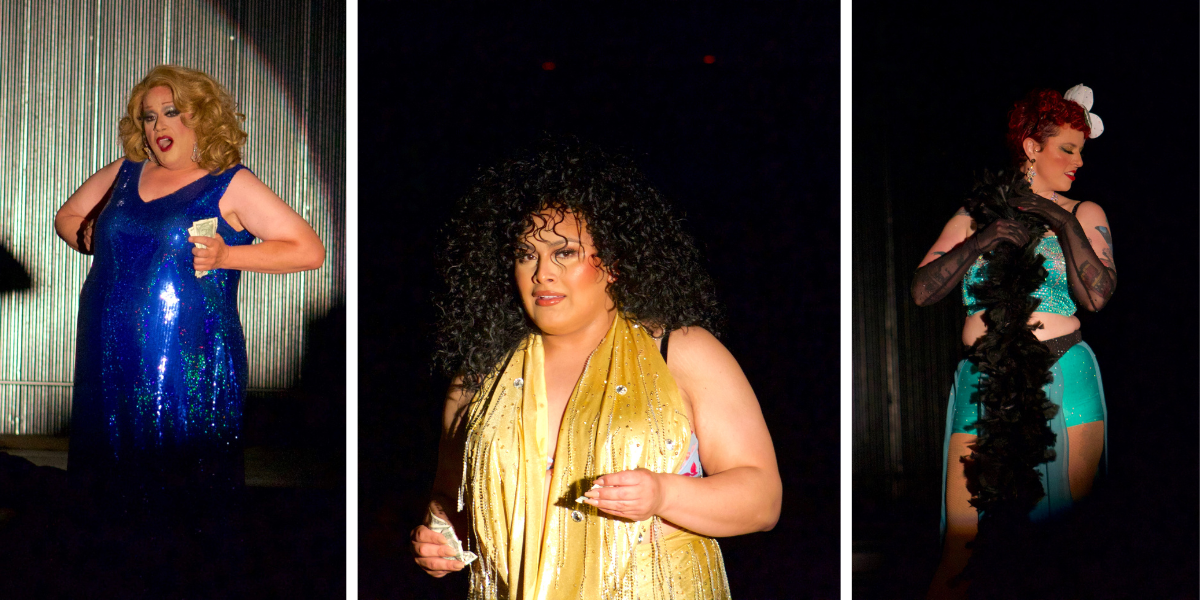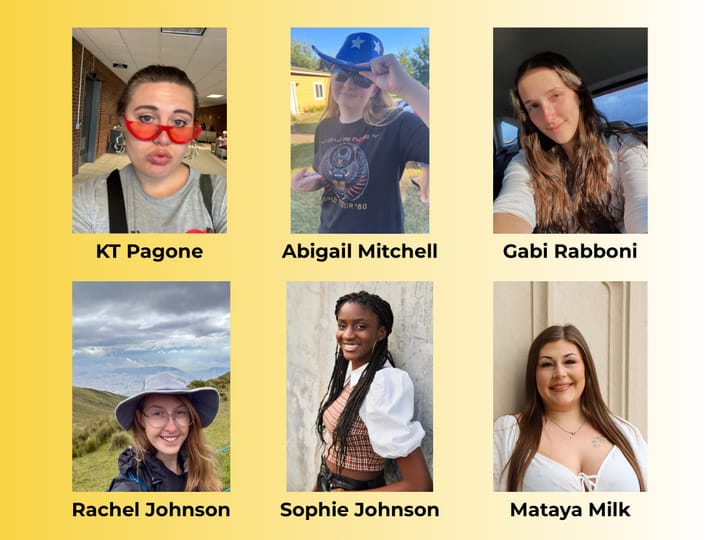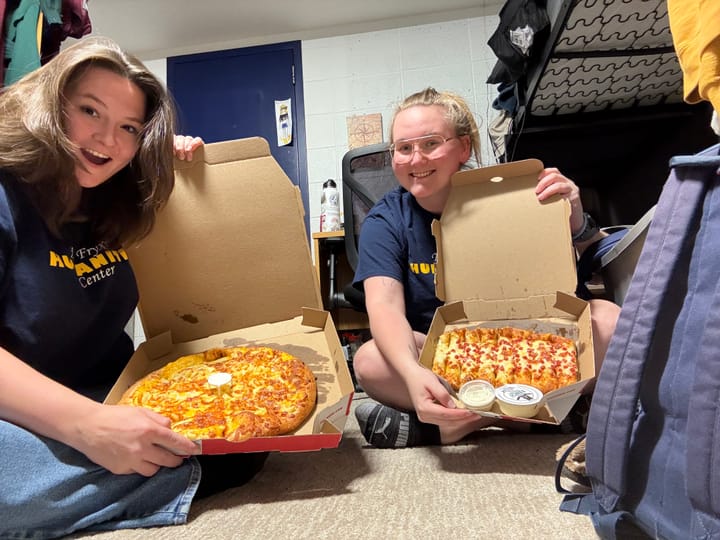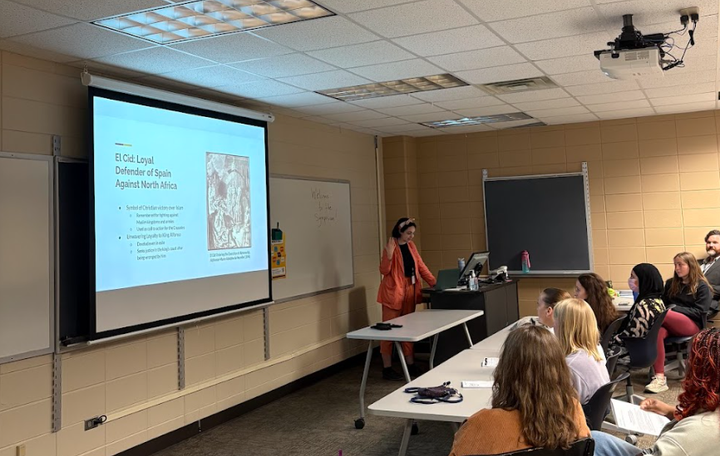Drag performance electrifies the Back Alley

In the Back Alley on Friday, April 14, the lights were dimmed and a spotlight beamed down the runway and landed on the stage at the front of the room. The room was packed from back to front. Students from all walks of life sat in anticipation of what they had been promised: a drag show.
Students sat in chairs in front of the runway or on the floor in the back. Some stood, trying to see the stage from afar. Knees bounced and eyes scanned the room, waiting for something to happen.
To the entertainers who were about to begin, standing behind the curtain, this was more than just a performance.
“There were a lot of moments before performances when I thought about how incredibly important it is for me to step foot on this campus,” Alessandra Jacobs, one of the entertainers and a transexual showgirl said.
Drag is a theatrical art form that challenges assumptions about gender identity. For many, drag shows uplift communities that support LGBTQ+ people across the nation. Some politicians and legislators, though, have recently argued that drag performers are grooming children. Drag performers disagree.
As the curtain opened for Kyra Rose Shakers, another performer of the evening, students screamed in delight and shock. During the performance, students cheered and clapped, and money waved in the air and fell to the floor. The energy that the entertainers exuded through their performance filled the room.
Junior Alex Gaspar, the co-president of Augustana’s Gender and Sexuality Alliance, said he enjoyed the atmosphere that filled the event.
“The energy in the room was amazing,” Gaspar said. “I couldn’t stop smiling. You can’t help but feel loved and accepted. On a campus associated with a church — granted it’s a very accepting denomination — it’s just amazing to have such an open community and such a strong outpour of love for the art of drag.”
Viola Velvet, a burlesque performer, danced to a vintage, cabaret version of “Seven Nation Army” by The White Stripes. The spotlight made her side profile glow like the crescent moon. Dust flew like misty rain as she led her black, feathered boa down the runway across faces and laps. The Back Alley was already hot from so many bodies in such a small space. But with a snap of her fingers, Velvet made the room so much hotter.
When asked what her favorite part of the show was, freshman Emma Boyens said it was the “jump-splits for sure.” For her, the whole show lived up to her expectations.
Sophomore Shelby Scott, an incoming cultural governor for UBG, said they were happy to attend the event.
“I’ve always wanted to see a drag show, and I saw a small drag performance at Pride,” Scott said. “I just really wanted to see another.”
Scott said they especially loved Jacobs.
“She was so nice and just so beautiful,” Scott said.
Gaspar said he believes that drag culture is as important as any other culture.
“It’s just like any other ethnicity’s culture,” Gaspar said. “It’s something that’s valued and has importance in the world. It matters. It’s something that you can’t ignore, and I think the more you know about it, the more accepting you will be. And it’s a great culture. What’s not to love about it?”
Martina Shakers, the dragmother — an established drag queen who acts as a mentor to younger performers — lipsync-belted to the queer anthem “This is Me” from “The Greatest Showman.” Martina Shakers sang the song in retaliation of anti-trans legislation, she said.
“A lot of people are using [drag culture] to steer attention away from much bigger [concerns] that need to be championed,” Martina Shakers said. “I feel targeted every single day. When I first started doing drag back in 2001, you didn’t get out of your car until you were in your garage. You carried your keys in case you had to punch somebody. I haven’t thought about that in years until recently.”
According to Jacobs, the recent advent of legislative tactics to silence and take away the rights of transgender people has been a taxing concern for individuals in and out of the drag, trans and LGBTQ+ communities.
“To wake up every morning and think, ‘This isn’t a dream. This is reality.’ It’s disheartening,” Jacobs said. “My heart breaks for the younger generations. We should be making progress. Instead, we are having to go through all these [obstacles] to have the same basic rights as our cis[gender] counterparts.”
For Gaspar, it is especially important that drag culture is shown to college students at Augustana University and across the country.
“I hope people take away that drag queens are not groomers,” Gaspar said, “They are human beings who are multitalented, expressing themselves through this amazing art. I hope people are able to see the humanity, the art and the love that is drag.”



